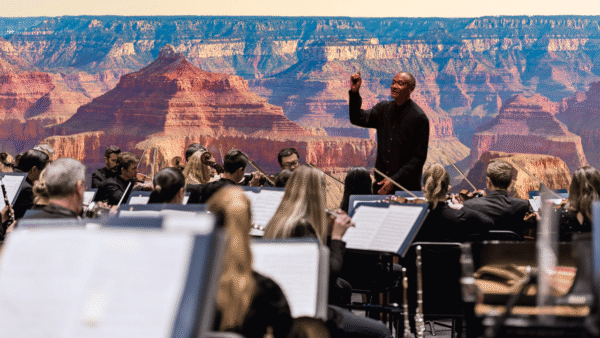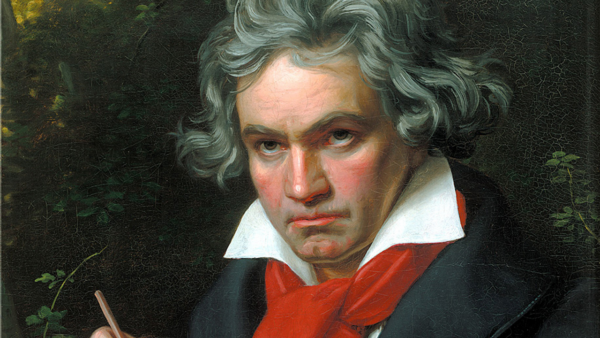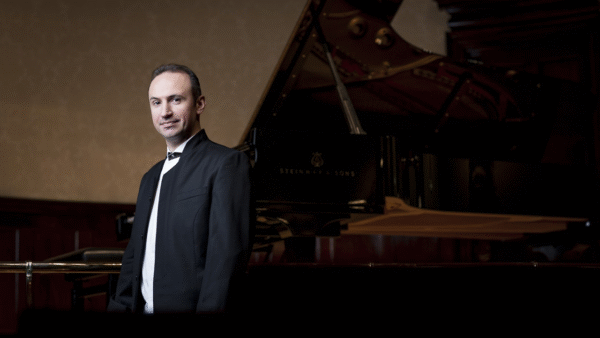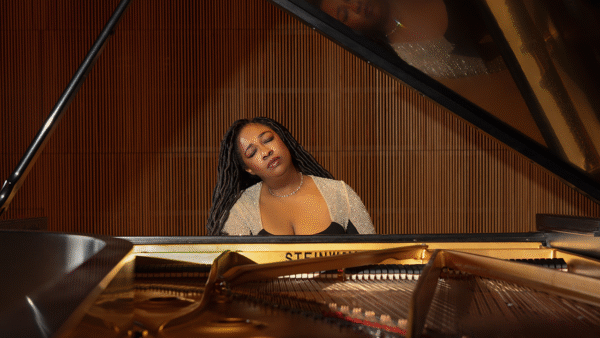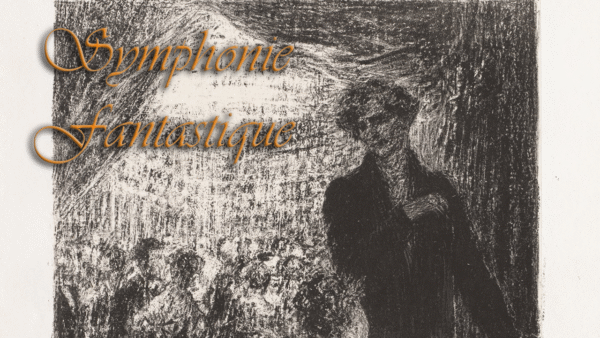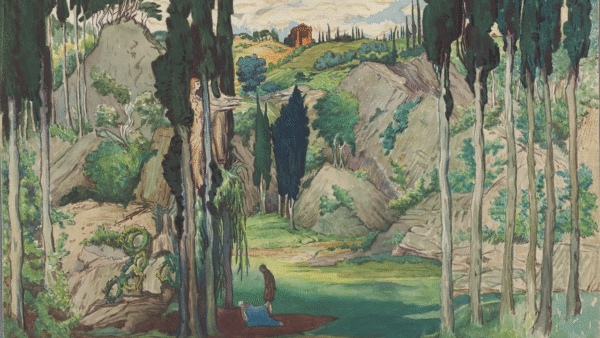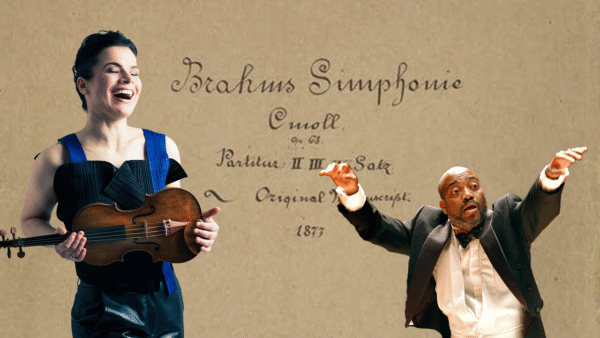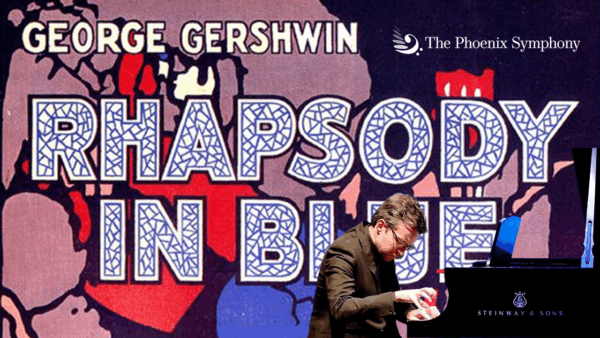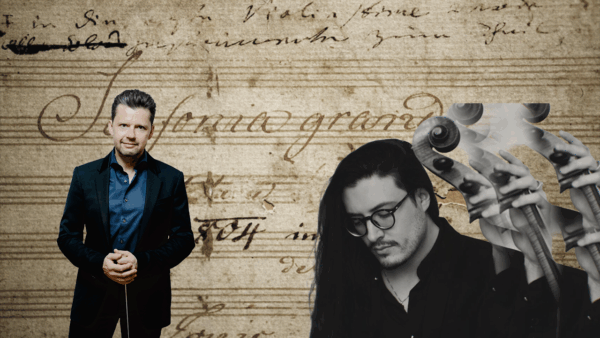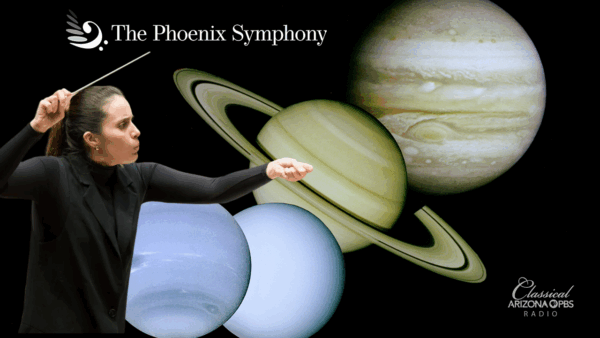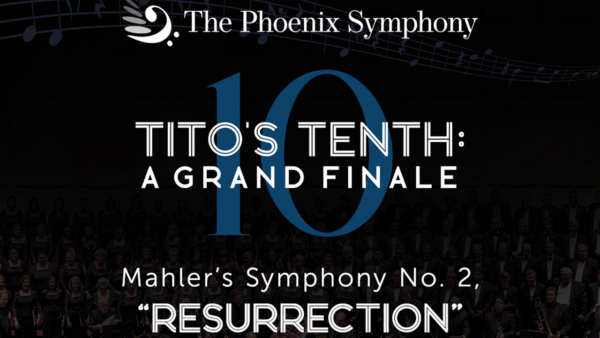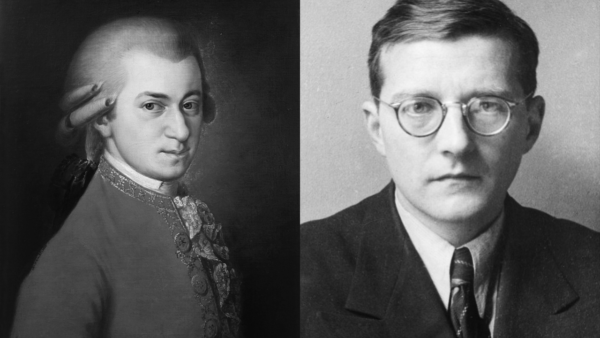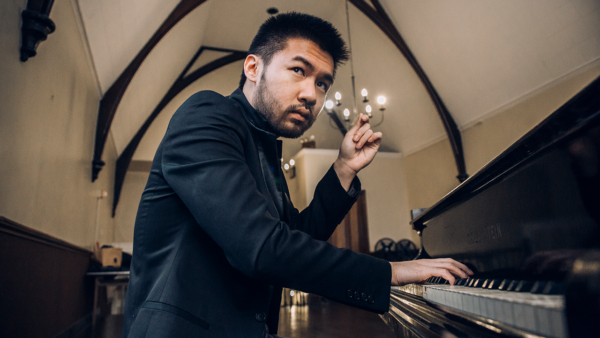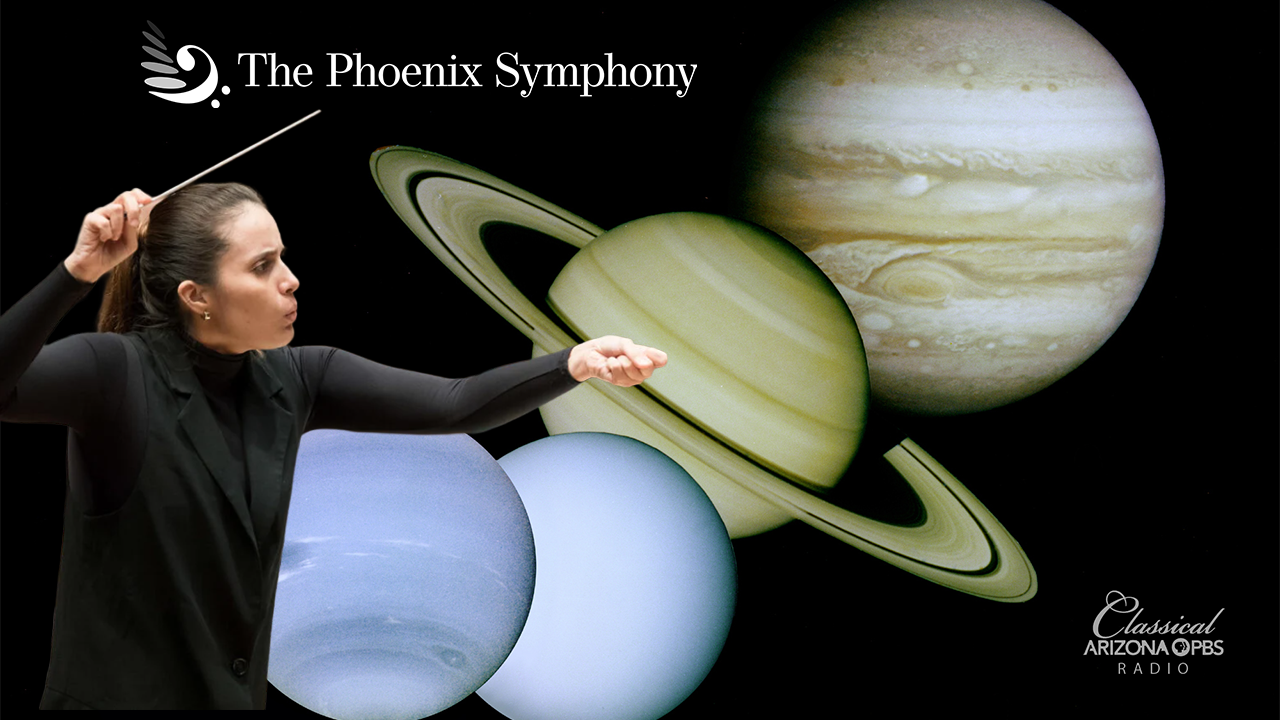
The Planets
Sept. 22, 2025
The Phoenix Symphony Opens Its Season
with Rhythm, Color, and the Stars
There is nothing quite like the thrill of a new concert season: the anticipation in Symphony Hall, the hush as the lights go down, and that first burst of sound that reminds us why live music matters. This fall, The Phoenix Symphony launches its ten-week broadcast series with a program as varied and colorful as an Arizona sunset, blending rhythm, dance, and the mystery of the stars. Listeners across the state and beyond can share in the excitement every Wednesday evening at 7 p.m. on KNAU Arizona Public Radio, on DTV 8.5 Classical Arizona PBS in Dolby Digital Surround Sound, and on Classical 89.5 KBACH. Each week offers a front row seat to the orchestra’s artistry, featuring guest conductors and music that spans centuries and continents.
The opening program begins with Drum Circles by Christopher Theofanidis, a vibrant concerto for four percussionists and orchestra. Written for the innovative ensemble The Percussion Collective, the work surrounds the orchestra with soloists who trade rhythms on marimbas, vibraphones, taiko drums, and even an amplified typewriter. It is a dazzling conversation in sound, part ritual and part playground, reminding us that rhythm is one of the oldest and most universal elements in music. A special spotlight belongs to The Percussion Collective, founded in 2018 by renowned performer and teacher Robert van Sice. The group gathers some of today’s most accomplished young percussionists, bringing precision, warmth, and an engaging sense of theater to every performance. Theofanidis wrote Drum Circles especially for them, giving the quartet a chance to surround the orchestra with rhythms that feel at once primal and completely contemporary. Their presence proves that percussion has moved far beyond its traditional supporting role, capable of carrying melody, drama, and excitement on its own.
At the heart of the broadcast lies Gustav Holst’s The Planets, a suite that has fascinated audiences for more than a century. Written during World War I, the piece was inspired not by astronomy but by Holst’s lifelong interest in astrology. He believed each planet known at the time had a personality that could be expressed through music. Mars, the Bringer of War, drives forward in a jagged five beat rhythm, its energy echoing in later film scores from Star Wars to Gladiator. Venus, the Bringer of Peace, offers radiant calm, while Mercury, the Winged Messenger, darts nimbly from idea to idea. Jupiter, the Bringer of Jollity, overflows with warmth, containing a noble hymn tune later adopted as I Vow to Thee, My Country.
The second half of the suite looks inward. Saturn, the Bringer of Old Age, begins with quiet inevitability before rising to a powerful climax, reflecting on time’s steady march. Uranus, the Magician, brims with playful mischief, and Neptune, the Mystic, closes the suite in an otherworldly shimmer, its wordless chorus fading into silence. Holst himself once described the work as a set of “mood pictures,” never imagining it would overshadow the rest of his music. Yet its daring harmonies, imaginative colors, and sweeping emotional arc have made The Planets one of the most influential scores of the twentieth century. Whether or not you ever read a horoscope, it is hard not to sense something vast and deeply human in its pages of sound.
Guiding this season opening concert is Lina González-Granados, one of today’s most exciting conductors. A Colombian American artist praised for her rich, heartfelt sound and rhythmic vitality, she serves as Resident Conductor of LA Opera and previously won the Chicago Symphony’s prestigious Sir Georg Solti Conducting Competition. González-Granados has led ensembles from the Atlanta Symphony to the Orchestre Symphonique de Québec, championing new music while bringing fresh insight to the classics. Her approach matches the spirit of this program: bold, colorful, and alive with discovery. Whether shaping the pulse of Drum Circles, unveiling the vibrant dances of Gabriela Lena Frank, or revealing the cosmic drama of The Planets, she invites listeners into an adventure where every note feels immediate and alive.
With Drum Circles, Three Latin-American Dances, Piazzolla’s Tango Apasionado Suite, and Holst’s The Planets, this opening broadcast sets a high bar for the season ahead. Future weeks will feature works by Kevin Puts, Debussy, Stravinsky, Beethoven, Gershwin, Brahms, and more, along with the Symphony’s ongoing commitment to contemporary voices. Wherever you listen, whether on KNAU, DTV 8.5, Classical Arizona PBS, or KBACH, you are invited to celebrate the artistry, variety, and joy that define The Phoenix Symphony. As the orchestra begins another season of music making, these broadcasts promise connection, inspiration, and a soundtrack as wide ranging as the Arizona sky.
Featured in this episode:
Theofanidis – Drum Circles – with the Percussion Collective
Piazzolla – Le Grand Tango – The Percussion Collective
Frank – Three Latin-American Dances
Holst – The Planets – with the Women of The Phoenix Symphony Chorus
- I. Mars, the Bringer of War
- II. Venus, the Bringer of Peace
- III. Mercury, the Winged Messenger
- IV. Jupiter, the Bringer of Jollity
- V. Saturn, the Bringer of Old Age
- VI. Uranus, the Magician
- VII. Neptune, the Mystic
Adams – Short Ride in a Fast Machine – Tito Muñoz, conductor
Piazzolla – Tango Apasionado Suite – Boston Brass
Central Sound – Marko Topchii Segment sneak peak









